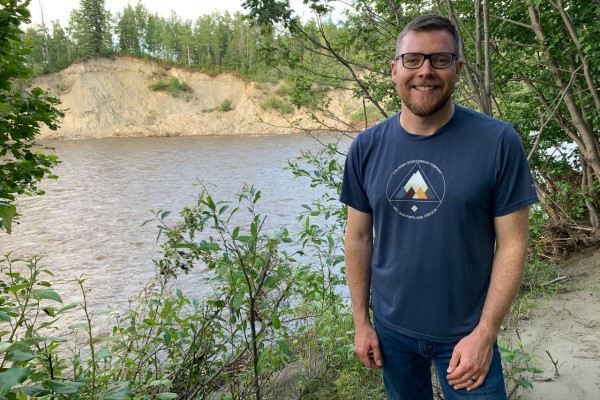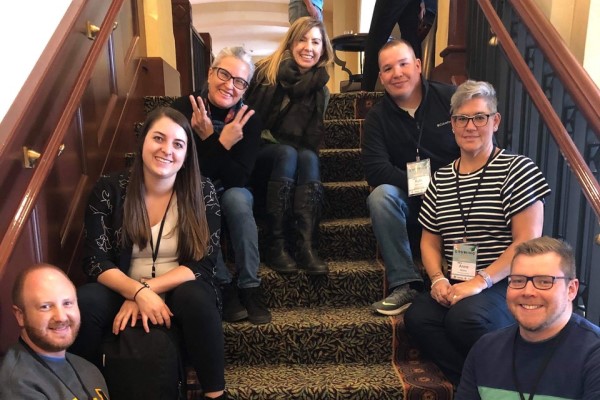Morgan Bamford

For many, the Indigenous Sport and Recreation Graduate Certificate (ISRC) is an opportunity for new growth in an area they are unfamiliar with, while for others it’s a continuation of the work they have dedicated their life to.
Both are true for recent graduate Morgan Bamford. Since graduating with honours from the Faculty of Native Studies in 2011, Bamford has spent his entire career working in Indigenous relations and community economic development. The ISRC allowed Bamford to expand on the knowledge he had gained through both his education and career, while exploring an area that was foreign to him—sport and recreation.
“I found that the ISRC program helped me to build on skills and knowledge I had gained and was a unique opportunity to extend my learning from both my Native Studies degree, as well as my MBA in Community Economic Development,” said Bamford. “The ISRC provides all students with new perspectives that encourage innovative and alternative thinking when it comes to supporting Indigenous communities and organizations.”

Photo of Bramford's ISRC cohort at the Alberta Recreation and Parks Association Conference October 2019
In just a short time since earning his bachelor’s degree from the University of Alberta, Bamford has established an impressive career that has included stops at Cando, the Government of Alberta, and now the City of Edmonton.
Bamford’s work has included supporting relationship-building and collaborative work between First Nations and municipalities, managing economic development grants and facilitating courses in Indigenous community economic development.
And now in his role as an Indigenous Relations Consultant for the City of Edmonton, Bamford works with a small team that supports government-to-government relationships between the city and the Enoch Cree Nation, while also supporting community events, non-profit organizations, and rights-based engagement with Indigenous communities.
“Occasionally, our office is called on to offer advice or insight to our colleagues working in recreation facilities. We also support several Indigenous sport and recreation activities happening in the City throughout the year. The learning from the ISRC has helped me to better understand the context of sport and recreation for Indigenous communities and to approach all of this work with more humility and a critical, yet constructive lens.”
Having been involved—either through education or his career—with Indigenous relations for over a decade, the ISRC was still an avenue for Bamford to expand on an area that was relatively new to him.
“I gained a much greater understanding of the role of sport and recreation as both a tool of settler-colonialism, but also a tool of resistance and resurgence by Indigenous communities. As a non-Indigenous descendent of settlers myself, the ISRC challenged me to reflect on the colonial systems of sport and recreation. I have begun to consider my role in either reinforcing or challenging these systems in both the professional and personal realms.”
While Morgan is still figuring out how the graduate certificate and the knowledge gained from it will impact his community and daily life, he is confident the ISRC will have an impact in many areas of his life.
“The ISRC is such a valuable addition to the Faculty of Kinesiology, Sport and Recreation. I highly recommend this program be continued and expanded so that it can have a benefit to other working professionals like me in their work to support Indigenous communities in sport and recreation.”